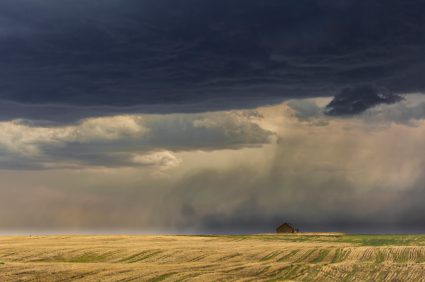 Last night, family members and I listened to Kansas’ memorable song “Dust in the Wind,” as we drove home from the store in preparation for another New Year’s Eve celebration. The haunting words and beautiful melody led us to converse about the meaning of life: are we only dust in the wind? The song claims the only things that last forever are the earth and the sky. Is that so? Left to themselves and perhaps our own activity, they will not last forever either. Even the sun is supposed to burn out at some point a very long time from now. Even so, the song was a thought-provoking and timely statement for a New Year’s Eve celebration.
Last night, family members and I listened to Kansas’ memorable song “Dust in the Wind,” as we drove home from the store in preparation for another New Year’s Eve celebration. The haunting words and beautiful melody led us to converse about the meaning of life: are we only dust in the wind? The song claims the only things that last forever are the earth and the sky. Is that so? Left to themselves and perhaps our own activity, they will not last forever either. Even the sun is supposed to burn out at some point a very long time from now. Even so, the song was a thought-provoking and timely statement for a New Year’s Eve celebration.
Our family conversation continued on over dinner and an evening devotion on Psalm 90. There the Psalmist writes about the Ancient of Days and how God is from everlasting to everlasting. Against this backdrop, the Psalmist reflects upon how God returns humanity to dust. A thousand years in God’s sight are but as yesterday when it is over. We are like grass that flourishes in the morning and fades and withers in the evening (See Psalm 90:1-6). In the midst of his meditations, the Psalmist asks God to teach him and his people to number their days so that they might gain a heart of wisdom (Psalm 90:12). At the close of the Psalm, he asks that God’s favor be upon them and that he would establish the work of their hands (Psalm 90:17).
Far from leading me to despair, the Psalmist’s sobering reflections on God’s eternality and our mortality lead me to think more wisely about the state of my life. Another year has passed. My father-in-law died in November. My children are now without grandfathers. Less important yet still sobering is the retirement of the face of my late father’s Chicago Bears, Brian Urlacher, and the arrival of an over-the-hill defense, culminating in yet another season of Bears futility. The aging Bears defense is not alone. Even my peers are beginning to talk of the aches and pains in their bodies as we hover around the half-century mark. One of them told me sheepishly yesterday of his need for surgeries for aging body parts. I am learning to take these things in stride, even if my stride is a bit slower now. Another new year. Certainly, another new year of untold possibilities. Yet also another year closer to dust.
So many people try to stay forever young. Perhaps they are afraid of growing old and dying and returning to the dust of the ground. After all, from dust we come and to dust we shall return (Genesis 3:19). So, perhaps some contemporaries believe they can hold off old age and death by having face lifts and taking youth potions of various kinds and possibly even ignoring the elderly. Old age and/or death will find us all, unless the Lord returns before they come. We must live in view of our end, no matter how it comes. Life is best lived within the limits of our creaturely existence.
Could it not be that some moderns’ drive to rid themselves of the Ancient of Days and eternity has resulted in trying to make an eternity out of time, as my doctoral mentor, Colin Gunton suggested? Is it the case that some moderns feel that God has envied our existence and sought to rob us of our joy? Not so, according to Karl Barth:
“Man goeth forth unto his work and to his labour until the evening” (Ps. 104:23); to which it belongs that he can use his senses and understanding to perceive that two and two make four, and to write poetry, and to think, and to make music, and to eat and drink and to be filled with joy and often with sorrow, and to love and sometimes to hate, and to be young and to grow old, and all within his own experience and activity, affirming it not as half a man but as a whole man, with head uplifted, and the heart free and the conscience at rest: “O Lord, how manifold are thy works” (Ps. 104:24). It is only the heathen gods who envy man. The true God, who is unconditionally the Lord, allows him to be the thing for which He created him.[1]
God does not envy humanity, like the heathen gods. God allows us to be that for which he created us—nothing more and nothing less.
May we live this life to the full this new year. May we live this new year in time in view of eternity, not in place of it or as if it is eternity. As we grow older, may we become holy fools who do not hold on to this life, as if it is all there is. Take to heart the Lord’s words to the rich fool who failed to realize his time was at hand (Luke 12:13-21). May we share life and resources with others the older we get rather than seize them. Wisdom would have us become richer toward God the closer we get to our end and eternity rather than store up things for ourselves that we cannot take with us when we depart (Luke 12:20-21). As we make New Year resolutions to clear out the dust from our lives, may the Lord teach us to number our days so that we might gain a heart of wisdom and live life abundantly. May God establish the work of our hands as we look to him in whose hands we live and to whom we return when we turn back to dust.
[1]Karl Barth, Church Dogmatics, vol. III/3, The Doctrine of Creation, ed. G. W. Bromiley and T. F. Torrance (Edinburgh: T. & T. Clark, 1960), p. 87.
This piece is cross-posted at The Christian Post.













